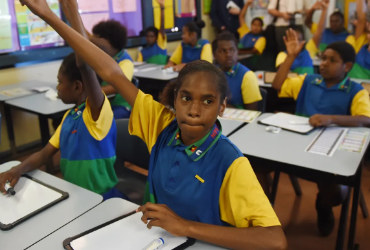
Articles
- Home
- Articles

The Impact of Teacher Wellbeing on Student Success: Prioritizing Educators in Australia
It's no secret that teachers play a pivotal role in shaping the future of our children. They are not just educators; they are mentors, guides, and often, sources of inspiration. In Australia, as elsewhere, the success of our education system hinges significantly on the well-being and satisfaction of our educators. In this article, we delve into the importance of teacher well-being and its direct correlation to student success, emphasizing the need to prioritize educators in the Australian education landscape.
The well-being of teachers is not just a matter of personal comfort; it has profound implications for the quality of education delivered in classrooms across the country. Numerous studies have shown that teacher well-being is directly linked to student outcomes, including academic performance, behaviour, and overall development.
Teachers who are physically and emotionally well are better equipped to deliver high-quality instruction. They can engage students effectively, adapt to different learning needs, and create dynamic and stimulating learning environments.
Teachers who feel valued and supported are more likely to build positive relationships with their students. These relationships, built on trust and respect, can foster a conducive learning atmosphere, where students feel safe to ask questions, share ideas, and seek guidance.
Teaching can be a demanding profession, requiring resilience and adaptability. Educators who prioritize their well-being are more likely to weather the challenges of the job and remain committed to their students' growth, even in the face of adversity.
Teachers are role models for their students. When educators prioritize their own well-being, they demonstrate the importance of self-care and mental health to young learners, setting a positive example for future generations.
Factors Impacting Teacher Well-Being
Several factors can significantly impact teacher well-being, including:
1. Workload: High workloads, administrative tasks, and long hours can lead to burnout and stress among educators.
2. Support: Access to professional development opportunities, mentorship, and support networks can enhance teacher well-being.
3. Autonomy: Teachers who have autonomy in their classrooms and the flexibility to adapt their teaching methods tend to experience greater job satisfaction.
4. Recognition and Respect: Feeling valued and respected by students, parents, colleagues, and the community at large contributes to teacher well-being.
Australian Initiatives for Teacher Well-Being
Recognizing the importance of teacher well-being, Australian educational authorities have taken steps to support educators:
1. Professional Development: The Australian government invests in professional development programs to help teachers enhance their skills and stay up to date with the latest teaching techniques.
2. Well-Being Resources: Various organizations and educational bodies provide resources and support for teacher well-being, including mental health programs, stress management workshops, and access to counselling services.
3. Collaboration and Networking: Encouraging collaboration among educators and providing opportunities for networking and mentorship can create a sense of community and support within the profession.
4. Recognition Programs: Recognizing outstanding educators through awards and accolades helps boost teacher morale and acknowledges their contributions to student success.
The Way Forward
In a rapidly changing educational landscape, the well-being of educators in Australia must remain a priority. By fostering a culture of teacher well-being, we can ensure that students receive the best possible education and that teachers continue to be the guiding lights in the lives of young Australians.
Ultimately, investing in teacher well-being is an investment in the future of our nation. It's a commitment to providing our students with the best education possible, equipping them with the knowledge and skills they need to succeed in an increasingly complex and interconnected world. As we celebrate the successes of our students, let's not forget to celebrate and support the educators who make those successes possible.




